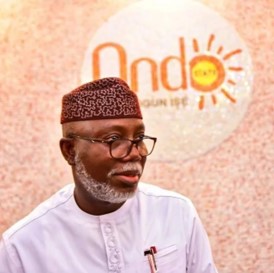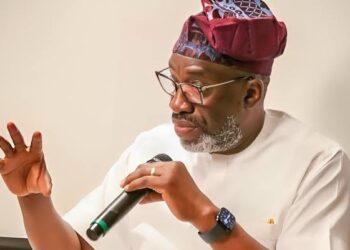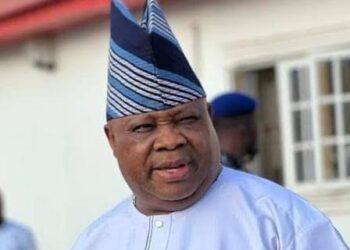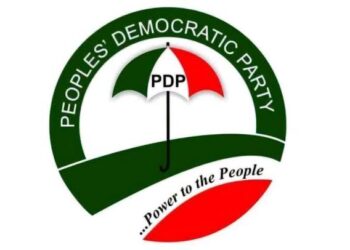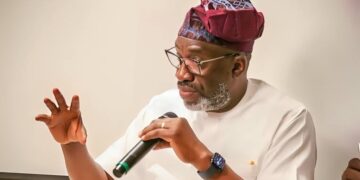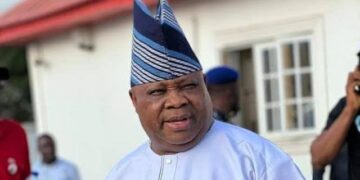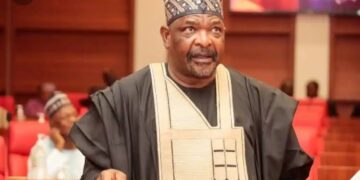Ondo State Governor, Mr. Lucky Aiyedatiwa, has emphasized the importance of increasing national awareness to encourage more active participation in Nigeria’s electoral process. In an interview on Arise News, the governor expressed concern over the growing trend of citizens registering for Permanent Voter Cards (PVCs) without participating in actual voting, attributing this to a lack of political engagement.
Governor Aiyedatiwa pointed out that while many Nigerians obtain their PVCs as a form of identification, a significant number remain inactive during elections. He noted, “We need to encourage people to vote, and there is a need for a national awareness campaign to motivate citizens to turn out on election day. It’s not just in Ondo State; this is a widespread issue seen across the country. Many people register for their PVCs just to have the document, but they do not engage in the voting process.”
The governor’s remarks come in the wake of recent elections where voter turnout was lower than expected, despite a large number of registered voters. He highlighted the discrepancy between the number of registered voters and those who cast their ballots, stressing that this trend is not unique to Ondo State but is prevalent nationwide. “The issue of passive voters isn’t confined to one state or election. It is a recurring problem in various elections held across the country,” Aiyedatiwa stated.
Addressing allegations of vote-buying in the recent elections, Governor Aiyedatiwa dismissed the claims, asserting that the process was free and fair. He acknowledged that some Civil Society Organizations (CSOs) and election observers had raised concerns based on reports from certain areas, but he argued that these accounts did not represent the entire electoral landscape. “Opinions on vote-buying are subjective, often influenced by the specific locations visited by observers. Not every area was covered by CSOs, and while there were delays initially due to the BVAS network issues, the process eventually normalised, allowing people to cast their votes,” he explained.
The governor further elaborated on the challenges faced during the voting process, particularly with the functionality of the Bimodal Voter Accreditation System (BVAS). He admitted that there were initial delays caused by network issues, which slowed down accreditation in some polling units. However, he assured that these technical difficulties were resolved as the day progressed, leading to a successful voting process. “Initially, there was a bit of delay in some areas due to BVAS network problems. This slowed down the process, but eventually, the system picked up, and people were able to vote. The final turnout figures were in line with those from previous elections, indicating a consistent voting pattern despite early setbacks,” he said.
Governor Aiyedatiwa also highlighted the need for electoral reforms to address these recurring issues. He called on Nigeria’s economic and political managers to invest in creating sustained awareness campaigns aimed at educating citizens about the importance of active participation in elections. According to him, increasing voter turnout requires a collaborative effort to shift the mindset of the electorate from merely acquiring PVCs to using them to make their voices heard.
The governor’s call for heightened voter awareness underscores a broader concern about political apathy in Nigeria, where many eligible voters either do not turn out on election day or are disillusioned with the political process. Aiyedatiwa believes that by investing in national awareness initiatives, the government can help bridge this gap, encouraging more citizens to engage actively in the democratic process.
In his concluding remarks, Governor Aiyedatiwa expressed optimism about future elections, noting that with increased voter education and improved electoral processes, Nigeria could see a more active and engaged electorate. He reiterated his commitment to supporting initiatives that would enhance voter turnout and ensure that the voices of the people are effectively represented in the democratic process.
“The goal is to create an environment where every registered voter feels motivated and empowered to participate in elections. By addressing the root causes of voter apathy and implementing targeted awareness campaigns, we can strengthen our democracy and ensure that the electoral process truly reflects the will of the people,” Aiyedatiwa concluded.


